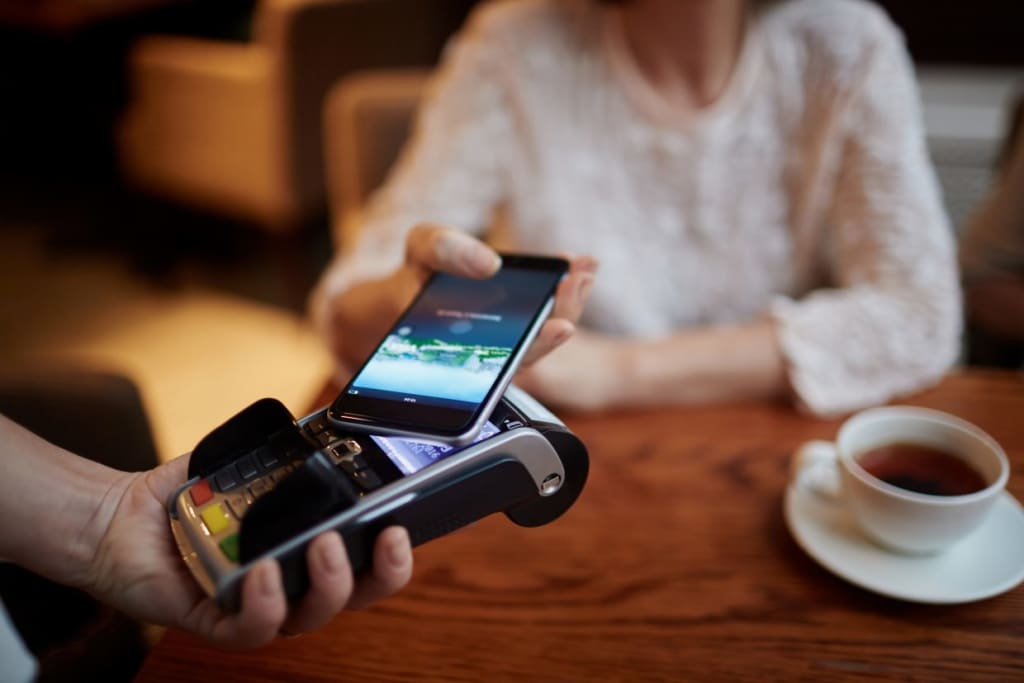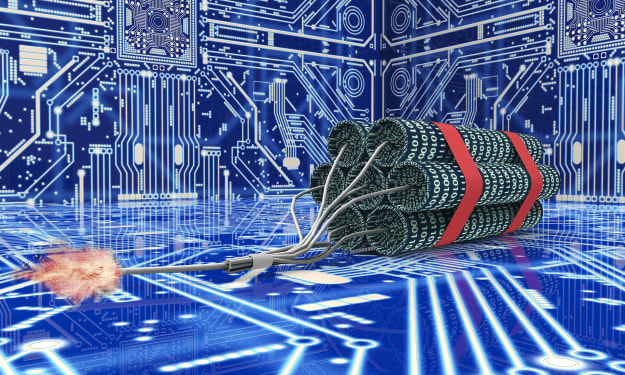Security Risks of Mobile Payments
Though your cellphone can become your wallet, the fact is that the security risks of mobile payments might make you think twice before you reach for Apple Pay.

Cellphones might just be one of the most useful inventions ever made. They have become our favorite tool to search up news, excellent roadmaps, and the most important form of communication people have with one another.
These days, they're also becoming our own wallets, too.
Mobile payments are becoming increasingly popular. Whether you're a fan of Samsung Pay or Apple Pay, it's hard to ignore how many retail stores have started to allow people to pay using their cellphones.
As convenient as it may be to whip out your phone to pay for that latte, you might want to think twice. There are some serious security risks of mobile payments technology that are becoming increasingly worrisome for retailers and clients alike.
The most obvious issue is the risk of a person stealing your phone and using it to pay for goods.
Sometimes, the greatest risks of mobile payments are also the most old-fashioned. Just like with taking a wallet or grabbing cash out of a person's pocket, thieves can just grab an unlocked phone and decide to use it for their own purposes.
The problem with mobile payments is that it's a lot harder to prove the spender isn't you than say, credit cards. The reason why is because people are way less likely to lose their phone than a credit card—and because credit card fraud is far more common than phone payment fraud.
Solve: Don't lose your phone, and always keep your phone locked with a PIN security code. Be careful with your payment apps.
Though it's more common to spoof credit cards, mobile payment fraud can happen from a spoofed phone.
Phreaking is alive and well, my friends. It's very possible to steal a smartphone, make a dupe of it using specialized software, and then take the duplicate phone to any retailer and use it to pay for goods.
Though this is still relatively rare, the fact is that knowledge of how to do it is quickly spreading. Either way, it ranks high among the security risks of mobile payments in many major cities—particularly those that are technologically savvy.
Solve: Never leave your phone alone in public, even if you trust the people around you to watch it. Consider getting some mobile security apps.
App security often struggles with major issues that aren't really easy to prevent.
A lot of the security risks of mobile payments aren't really because of the people who use the phone or the apps that allow you to send payments. It's because most apps have security weaknesses in their programming and coding—many of which may not even be discovered yet.
It only takes one data breach or one disgruntled employee to show how much devastation the security risks of mobile payments can cause when exploited. Once your personal information is out there, keeping yourself safe is very unlikely without changing your passwords and such.
Solve: Keep abreast of cybersecurity news and make a point to use safe apps. If you hear about a data breach with your information, contact the company to find out what you can do.
Hackers can also spoof the credit card information in your mobile wallets.
One of the more worrisome security risks of mobile payments is the likelihood of hackers using "sniffers" or grabbing data exchanged in unsecured wifi to find out the credit card numbers you linked to your mobile wallet.
When they find out the data you uploaded to your wallet, they can add that same data to their own mobile wallets. This is still rare, but if it's done, is extremely difficult to disprove in many cases.
Solve: Don't upload new credit cards in areas where public wifi is available. Do it in private.
Retail terminals could be compromised.
Just like with credit card payments, one of the risks that is increasingly burdening businesses is the potential of having a hacked credit card terminal. With credit cards, the biggest issue is having a skimmer attack that steals data mechanically.
With mobile payments, the biggest threat would be a program that's uploaded to the terminal that logs the information exchanged. Though rare, this can happen. When it does, credit cards and mobile payments are both compromised.
Solve: Keep a close eye on transaction records and news reports to ensure that you haven't gotten into the line of fire.
Sometimes, it's also legitimately human error.
Once in a while, a person who's manning a terminal may have a slipped finger. This can cause a fraudulent charge in the form of a double charge. This isn't so much one of the security risks of mobile payments as much as it is an annoyance.
Even so, it's worth noting.
Solve: Dispute double charges.
Mobile malware is a growing concern.
Malware on mobile phones is a real issue, and it comes in many forms. Some come in the form of Bitcoin wallet scams. Others leave pesky ads on your phone. But, more insidiously, some take your mobile wallet information without you realizing it.
When this happens, hackers who create the malware can sell your information or use it as their own.
Solve: Don't download sketchy programs, and keep an eye on your transactions.
Phishing
Yes, phishing remains one of many security risks of mobile payments. In this scam, a phisher sends out an email pretending to be support from a mobile wallet company like Apple Pay.
They ask you to log in, or give passwords to let them log in. You end up clicking a link where you log into your account, not realizing that you're actually giving your information to a malicious third party.
It's a classic black hat hacker trick, and it often ends up with the person's information on sale on the Dark Web.
Solve: Don't open sketchy emails, and always verify with the company by their official phone number before you "log in" anywhere. Ignore strange text messages, too.
Disgruntled employees might also have something to do with certain security risks of mobile payments.
Sometimes, secure mobile payments stop being secure due to employees that choose to go rogue. Depending on what the employee does and where they work, they may have access to data that could quickly turn ugly if they choose to use it the wrong way.
Solve: If you're a retailer, be careful of who you hire. If you're a buyer, report any strange transactions to authorities so they can investigate it.
Overall, there are a lot of security risks of mobile payments.
No form of payment is fully secure, and truthfully, there are both benefits and risks involved with mobile payment methods. Though you should be watchful, there's no reason to eschew it altogether. After all, it's popular for a reason.
About the Creator
Cato Conroy
Cato Conroy is a Manhattan-based writer who yearns for a better world. He loves to write about politics, news reports, and interesting innovations that will impact the way we live.






Comments
There are no comments for this story
Be the first to respond and start the conversation.